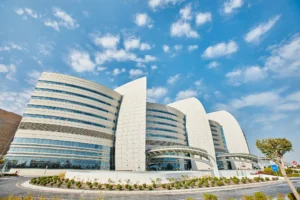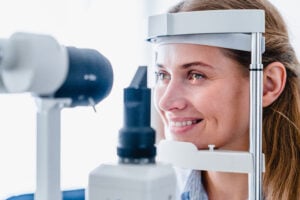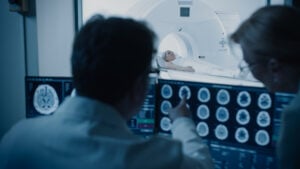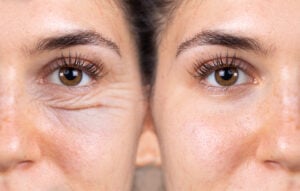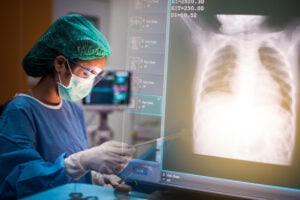More than a million people worldwide are waiting for an organ transplant, and unfortunately, many will die before a donor can be found. According to WHO figures, 144,000 transplant operations are carried out each year. But this is less than 10% of those required.
The most common operation is a kidney replacement, representing 64% of organ transplants globally, followed by the lung at 25%. The ageing of the world population means that the demand for such transplants is growing faster than the supply of donated organs.
The lack of organ donations has led many countries to campaign for more donors to step forward, carrying a donor card or having their donor status entered on their driving licenses. In the event of accidental death, their organs could then be rapidly made available for transplant. But the prevalence of donors worldwide is highly uneven. Only three countries have more than forty organ donors per million of the population – Iceland, the USA, and Spain. Most of the African continent has no organ transplant facilities or has no available data on organ transplants. Similarly, no data is available for the Russian Federation, Venezuela, Iran and Indonesia.
Opt-out donations
In Iceland, a law passed in 2018 made all citizens presumed organ donors on their death, and those who do not wish to donate can opt-out on a central register. Other countries with an opt-out system include Chile, Finland, Croatia, Belgium, Austria and Singapore. Some countries, such as the UK and Spain, will assume the deceased gives consent if their closest family members agree. However, most countries operate an opt-in system whereby people must register or otherwise declare their willingness to be a donor in advance.
Many countries have focused on encouraging donor volunteers to increase the availability of organs for transplant. But there are other issues, too, such as medical and logistical infrastructure. In India, for example, donations have been organised on a state-by-state basis rather than nationally because transferring donated organs from one state to another was not considered feasible. Organs deteriorate rapidly after removal, so lungs and hearts must typically be implanted within six to twelve hours, whilst kidneys can remain healthy for up to 36 hours. In February 2023, however, the Indian government established a central national database and allowed all citizens, including those over 65, to register under a single waiting list for the first time. It is suggested that drones may be used to transfer organs rapidly across the country.
Travel for transplants
Around the world, there are too many patients chasing too few donors. So inevitably, some people seek to travel in search of a transplant. Transplant tourism has emerged as an option for patients seeking faster access to transplants, often involving travel to countries with more favorable waiting times or costs. A 2016 study focusing on US patients who traveled abroad for kidney transplants revealed that The Philippines, India, China, Mexico, and Iran were the most sought-after destinations in descending order.
However, unlike other forms of medical tourism, the presence of a donor requirement complicates the landscape of transplant tourism. International regulations prohibit commercial organ transactions, and deceased donors cannot be procured on demand. In the US study, many patients likely held dual citizenship with the destination countries, facilitating a faster and more cost-effective transplant process. It is important to note that the challenges and ethical concerns surrounding organ availability persist, urging the need for comprehensive solutions to bridge the gap between patients and donors in a fair and sustainable manner.
Best practice
Spain has the highest number of donors in the world at around 46 per million population (PMP) and the highest number of transplants, 113 PMP (2022 figures). It also has a high-quality healthcare system and attractive medical tourism features. These strengths attract visitors from across Europe. Within the European Union, it is possible to have medical treatment carried out in another member country, though a residence period may be required.
Spain is also pioneering new approaches to transplants. In April 2023, one hospital in Barcelona used the Da Vinci robotic system to carry out a lung transplant through a 8 cm incision in the abdomen rather than through the usual 30 cm incision, which involves cutting through bone. The country also leads the way with transplants from donors where the heart has ceased functioning, called asystole. This is more complex as the heart must be artificially kept in operation to maintain the health of the organs to be donated.
At the end of 2022, there were 2,451 patients awaiting kidney transplants in Hong Kong, and the waiting time was estimated at just under five years. In this situation, some have chosen to travel to China, where waiting times can be just a few months. Citizens of Hong Kong, Macau and Taiwan have been allowed to enrol in the mainland’s organ donation system simply by registering with a local hospital, where they are then added to the waiting list.
Live donors
Because of the tight controls over organ donation, transplant tourism is usually done simply to reduce the cost of the surgery or the waiting time for the procedure, and the patient will travel with a live donor. This would be a close relative or partner, depending on the regulations in the destination country. For a kidney transplant, typical costs of €230,000 in the USA compare with €75,000 in Germany, €32,000 in Turkey, to as little as €9000 in India, Pakistan or the Philippines.
Finding a live donor means that the surgery is less complicated. There is no rush to transfer the organ across the country and keep it fresh, and pre-transplant compatibility tests can be done leisurely, reducing the risk of rejection.

